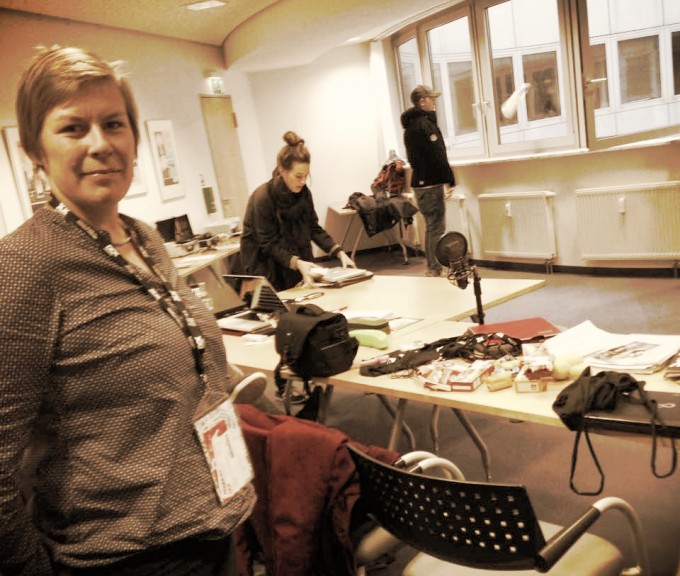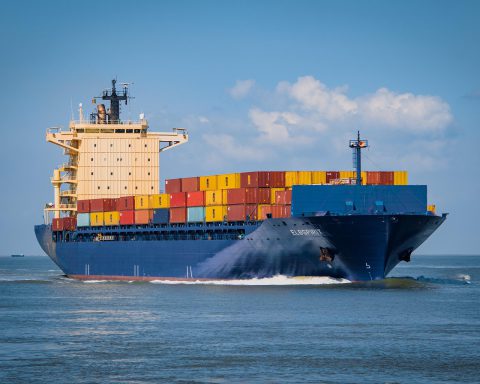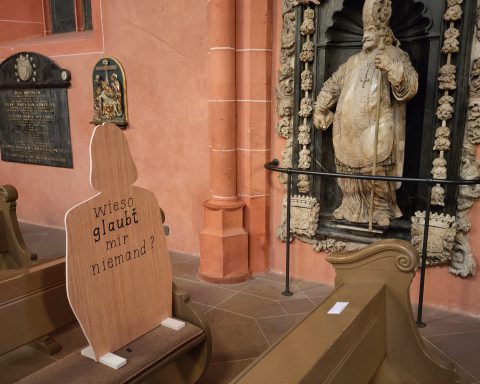Like most of their colleagues from around the world, German journalists were dumbfounded when Donald Trump was elected president of the U.S. on 8 November, 2016. Many had to admit that instead of discounting his candidacy as a practical joke, they should have taken it seriously, and adequately analyzed it.
How did German journalists immediately react to the news?
To learn about this may be interesting also for those of you who live in Leipzig but don’t read in the German language. So here LeipGlo offers an overview of how 19 journalists from five major German newspapers and one magazine commented on Trump’s electoral victory on the day after, 9 November. How to explain it, and what to expect from it?
The media outlets chosen represent a cross-section of political orientations in Germany. Although some of their views were more apocalyptic than others, the journalists all had one thing in common: They weren’t happy.
(Selected and summarized by Maximilian Georg)
Frankfurter Allgemeine Zeitung
(FAZ, “Frankfurt General Newspaper;” liberal-conservative)

(1) Oliver Georgi finds that by electing Trump, Americans have opted for an experiment, because what they wanted most was to defeat the “establishment” in Washington. Hillary Clinton stands for the latter like few other figures. Trump, on his part, with his fancy life amidst the establishment, couldn’t be further away from his voters; but given his financial independence, they think that he won’t be influenced by that system as others have been before.
(2) Klaus-Dieter Frankenberger puts it more drastically. Trump was flushed into the White House by a wave of anger; a movement, a populist riot against “the” elites of American politics, economy, and culture. Will the Republicans, with their dominance in Congress, be able to soothe that anger?
(3) To the reasons of Trump’s success, Mathias Müller von Blumencron adds the digital revolution. In the background, there are the profound divisions within the societies of the West, which, as earlier shown by Brexit, don’t succeed anymore in finding common truths. What is home? What is future? Seeing such insecurities, people try to escape, and find their shelters on Facebook, Twitter, or WhatsApp. These tools offer users identities, and the feeling of belonging somewhere – for example to Trump, who is very present on social media.
(4) As for the future, Berthold Kohler expects that President Trump will stick to the new American isolationism he has been announcing, in the belief that “The strongest is strongest alone.” Europe, therefore, must end its internal disputes, and take more care of its own interests and concerns in Europe and beyond.
Der Spiegel
(“The Mirror,” weekly magazine from Hamburg; center-left)

(5) According to Barbara Hans, her own fellow journalists are to be blamed for part of Trump’s success. They have believed for too long that politics is a rational business, done with the brain rather than with the guts. A populist like Trump simplifies to the utmost, and floods the world with unobjective statements. Also, his nastiness disqualified him on a human level. People weren’t put off, though, by his savage outbursts. They followed him rather because of them: His rage made him seem authentic. Look at me, was his message, that’s how I really am. I don’t even make the effort to appear perfect and aligned. I say what I think. I am me. This was the absolute contrast to Hillary Clinton’s way of presenting herself. Clinton may have been perfect, but people couldn’t know who she was, behind her aesthetic, choreographed, overly smooth appearance. Trump wasn’t perfect at all, but people thought that at least they knew who he was, and what to expect from him. However, his “authenticity” is just as staged as Clinton’s total control. Trump’s being out of control all the time requires enormous control itself. That’s what journalists should have unveiled to keep their public from opting for the “authentic” choice.
(6) America is at war with itself, Georg Diez observes. A silent civil war has been raging for years, with white men on one side and, on the other, different races and minorities. The battle of the whites, nowadays known as “whitelash,” has to do with societal change in the past years and decades, but that change can’t completely explain the irrational fear and hate that Trump’s supporters express. Hopefully, the political process, where those whites are now represented, will be able to channel and civilize all that violence that society contains. Whether democracy holds is up to everybody.
(7) Roland Nelles, too, pins such hopes on the political system, but sees no guarantee that it will check a president like Trump. For America and the world, he’s a catastrophe. Populism has prevailed over reason. Trump destroys and divides. His biography and campaign illustrate that he doesn’t strive for constructive solutions and compromise, but only enforces his egoistic, nationalistic interests, in the style of an autocrat. “I alone can fix it,” that is his illusion. As a result, the world will be unstable, and America’s democracy in danger, as Trump will do all he can to shackle his opponents at home.

Süddeutsche Zeitung
(“South German Newspaper,” Munich; social-liberal)
(8) In the opinion of Jannis Brühl, Trump wouldn’t have won without Facebook and Twitter. He used them with his qualities as an entertainer, with which unapproachable Clinton, in spite of her numerous and bilingual social media team, couldn’t really compete. While on one hand social media democratize information, they polarize and misinform on the other. True and false information seem to have the same value, so that conspiracy theories and fake “news” find their determined believers. In that media democracy, we consume nothing but the information we want, whereby we just reinforce our prejudices. Worse, it’s fanciful stories that gain most user feedback, which then spreads them even more through internet algorithms. Under such circumstances, a “troll” like Trump gets his chance.
(9) Andrian Kreye adds that America has not been as divided since the Great Depression in the 1930s. The root of today’s division goes back to the 1980s, when neo-liberalism widened inequality. Americans have become so full of fear that they forget their tradition: They used to feel, multicultural as they are, as if they were linked by a common future. Now, they define their nation as Europeans do: by a common past, namely the (dubious) past to which Trump’s slogan refers, “Make America Great Again.” American fear has of course been worsened by the presidential election campaign: Both parties didn’t seek to convince voters in the first place, but to destroy their opponent. This is known as “negative campaigning,” where “opposition researchers” look for ways to slander the other side. Their ultimate goal is to find a “silver bullet,” a fatal revelation which, “at best,” will end their adversary’s political career.
(10) Kurt Kister has confidence in the American state. “Checks and balances” will ensure that Trump doesn’t run the White House like a casino in his Atlantic City, where he triggered, for his own gain, an organized bankruptcy. However, he’s a protectionist, unlike all U.S. presidents of the previous decades. As a consequence, all the European states that have been allied with the U.S. will have to reposition. Transatlantic relations will become more competitive and confrontational.
(11) In addition, Heribert Prantl expects that Trump’s populism will spread across the Atlantic. So far, there have been limits to what may be said in public, also for populists. Trump has torn the rules down, and ruined political culture. Yet he won. Therefore, populists from around the world will emulate Trump’s aggression, racism, nationalism, xenophobia, and disdain for the Constitution. Also Germany should beware. Perhaps more so than Americans, Germans appreciate political stability and experience. They may not be less susceptible, though, to populist simplifications.
Die Tageszeitung
(TAZ – “The Daily Newspaper,” Berlin; leftist)
(12) In the opinion of Bernd Pickert, the U.S. election has been won by the “horror clown.” Trump has identified all societal progress of the past fifty years as the cause for the current crisis, and voters believe that he will “deliver” them from that change. In his campaign, Trump could rely on the infrastructure of the Republican Party, since even though he annoyed them, Republicans didn’t ditch him. At the same time, the Democrats failed by imposing Hillary Clinton as candidate at all costs, instead of Bernie Sanders. Barack Obama bears part of the blame as well. He had promised to change America not only in its laws, but also in its thought. The election of someone like Trump is the worst demonstration of Obama’s failure. If the U.S., in 2008, took one step forward, it now takes three steps back. To be sure, in his victory speech, Trump called his country to unity. However, out of his mouth, that sounds like he’s asking the defeated to submit to him unconditionally.
(13) Barbara Junge doesn’t trust the gentler version of Trump either. He has promised hate, and hate he will supply. He even depends on hate, namely on hating scapegoats as an excuse that he won’t live up to his plan to take America back to the “prosperous” 1950s. Digital economies as well as global migrations cannot be reversed. America has to adapt itself to the modern world. The world, on the other hand, must be warned that the losers of global capitalism will insist on solutions. This should encourage the Left to further resist the dismantling of solidarity in democratic societies.

Die Welt
(“The World,” newspaper from Berlin; conservative)
(14) According to Ansgar Graw, Trump has been elected because large numbers of white Americans fear the approaching day where they no longer will represent the country’s majority. Moreover, they have been victims of a political correctness that forgot about them in favor of ethnic and sexual minorities. Nobody in the U.S. would dare to speak of “Hispanic” or “Afro-American trash,” whereas the label “white trash” goes undisputed. The wounds resulting from this have been exploited by Trump. Nevertheless, he’s an unrestrained narcissist, which is why his election is the worst global event since September 11. He is, to be sure, no fascist; no criminal wanting to exterminate people or entire peoples. However, he is as unpredictable as a hurricane. For example, what happens if the overly touchy man feels disrespected by a foreign leader? Thus, instability is the price not only American voters – but the globe – will have to pay for the adventure they embarked upon by voting for Donald Trump.
(15) Clemens Wergin agrees that Trump is not only a “lord of darkness.” He can be charming, ironic, and entertaining. However, in his authoritarian style, he has more in common with Latin American caudillos than with any preceding U.S. president. The fathers of the U.S. Constitution equipped the latter with security mechanisms out of fear of exactly someone like Trump. Unfortunately, under today’s circumstances, those mechanisms may fail. The American political system has lost its ability to compromise. Congress will be ruled by Republicans, and any dissenters among them will be forced to support Trump by the mob of his followers on the streets and social media. Besides, Presidents G.W. Bush and Obama have, by their governance practices, extended their office’s power so much that critics observe “imperial presidencies:” for example, Obama, by executive order, amnestied five million illegal immigrants despite the fact that it was against a law enacted by Congress. Trump may follow this model of ignoring legislation. Worse, he won’t even bother to familiarize himself with many political topics. He is said to possess the attention span of a pre-school child, and to draw most of his information merely from TV. Finally, he’s an unparalleled liar, and it’s not clear whether he maintains any values that go beyond his own self.
Die Zeit
(“Time,” newspaper from Hamburg; center)
(16) Heike Buchter explains how Trump won the election. His success across the country is a most brutal rejection of the “establishment” and Washington. For years, the latter, including Clinton and her Democrats, have been ignoring moods beyond the big cities with their yoga studios and vegan restaurants. Traditional industries have declined, and unskilled workers won’t be employed in Silicon Valley instead. Worse, after the financial collapse of 2008, average earners lost their job, their savings, their house, or all of that, while not a single banker has been brought to trial. Now, those voters are sick of watching wealthy donors, hedge fund managers and lobbyists impose their will on the country. The ballot is people’s means to resist.
And what to expect from Trump? Die Zeit is particularly pessimistic:
(17) In the opinion of Carsten Luther, Trump is a fatal mistake; a monumental disaster. A totalitarian dazzler, fraudulent dilettante, sexual assaulter, racist, pathological liar and nervous egomaniac will move into the White House. Even as a businessman, Trump is not what his voters think: he went bankrupt multiple times, didn’t pay bills, and evaded taxes. However, he suits the egoism that, throughout America, Republicans have been fostering over several decades. No more values, just the right of the strongest. We are scared by what we already know of Trump’s plans and ideas. Still worse is what we don’t know; things that he may come up with tomorrow, for the applause that he needs. Trump makes America unpredictable.
(18) Bernd Ulrich draws the big picture. Trump’s election brings an end to the “American century,” which began 99 years ago, when America entered World War I in 1917, and during which the United States was the global leader. The president-elect is a man of affects, constantly looking for recognition, stimulus, and dispute. His way of governing will be rash; it will be “tempocratic.” With somebody like that, Europe’s democracies can’t rely anymore on their big protector from across the Atlantic. If the “Western world” still exists, the European Union now is, despite all self-criticism, its best-functioning power; and German Chancellor Angela Merkel is the most powerful person on Earth who is neither authoritarian nor has “bats in the belfry.” This is the biggest political as well as cultural conflict since the end of World War II in 1945. The struggle for democracy is open yet again.

(19) However, will even President Trump not be restrained by the famous “checks and balances” of the U.S. Constitution? Christian Bangel has doubts. Many Republican Congressmen and women don’t like Trump at all, but in the Congressional elections, Trump may fund his own candidates against incumbents opposing him. In any case, outside the country, he would be authorized even to wage a war for up to sixty days before having to ask Congress. Second, he may adapt the Supreme Court’s composition to his political program. Three of the currently four liberal justices are around 80 years old. If they should die under Trump, he will replace them with less liberal appointees. Third, even though Trump is hugely unpopular with the heads of his country’s military, he may “solve” that problem as well by replacing recalcitrant generals with more supportive ones. Hence, Trump will put U.S. democracy to a daunting test.









